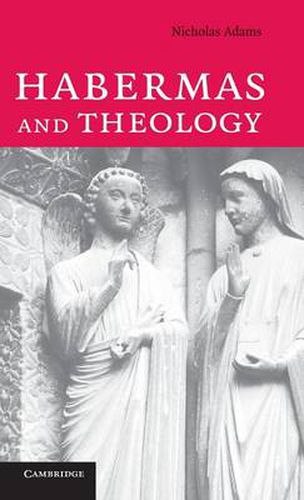Readings Newsletter
Become a Readings Member to make your shopping experience even easier.
Sign in or sign up for free!
You’re not far away from qualifying for FREE standard shipping within Australia
You’ve qualified for FREE standard shipping within Australia
The cart is loading…






How can the world’s religious traditions debate within the public sphere? In this book, Nicholas Adams shows the importance of Habermas’ approaches to this question. The full range of Habermas’ work is considered, with detailed commentary on the more difficult texts. Adams energetically rebuts some of Habermas’ arguments, particularly those which postulate the irrationality or stability of religious thought. Members of different religious traditions need to understand their own ethical positions as part of a process of development involving ongoing disagreements, rather than a stable unchanging morality. Public debate additionally requires learning each other’s patterns of disagreement. Adams argues that rather than suspending their deep reasoning to facilitate debate, as Habermas suggests, religious traditions must make their reasoning public, and that ‘scriptural reasoning’ is a possible model for this. Habermas overestimates the stability of religious traditions. This book offers a more realistic assessment of the difficulties and opportunities they face.
$9.00 standard shipping within Australia
FREE standard shipping within Australia for orders over $100.00
Express & International shipping calculated at checkout
How can the world’s religious traditions debate within the public sphere? In this book, Nicholas Adams shows the importance of Habermas’ approaches to this question. The full range of Habermas’ work is considered, with detailed commentary on the more difficult texts. Adams energetically rebuts some of Habermas’ arguments, particularly those which postulate the irrationality or stability of religious thought. Members of different religious traditions need to understand their own ethical positions as part of a process of development involving ongoing disagreements, rather than a stable unchanging morality. Public debate additionally requires learning each other’s patterns of disagreement. Adams argues that rather than suspending their deep reasoning to facilitate debate, as Habermas suggests, religious traditions must make their reasoning public, and that ‘scriptural reasoning’ is a possible model for this. Habermas overestimates the stability of religious traditions. This book offers a more realistic assessment of the difficulties and opportunities they face.